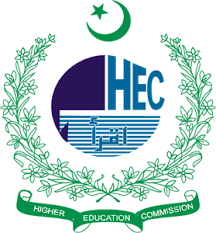A Comparative Study of the Theological Methodology of Imam Al-Ghazali and Allama Syed Ahmad Saeed Kazmi
امام غزالیؒ اور علامہ سید احمد سعید کاظمیؒ کے متکلمانہ منہج کا تقابلی مطالعہ
Abstract
This research study presents a comparative analysis of the theological methodologies (kalaamī manhaj) of two eminent Islamic scholars: Imam Abu Hamid al-Ghazali (11th century CE) and Allama Syed Ahmad Saeed Kazmi (20th century CE). Both scholars, though separated by centuries and differing intellectual contexts, made profound contributions to the defense and elucidation of Islamic beliefs. Imam al-Ghazali’s methodology was rooted in a comprehensive integration of philosophy, mysticism (tasawwuf), rational inquiry, and scriptural evidence. He critically examined philosophical doctrines that conflicted with Islamic theology, as reflected in his renowned work Tahāfut al-Falāsifah (The Incoherence of the Philosophers). His theological discourse emphasized heart-based spiritual experience, purification of the soul, and intuitive certainty (yaqīn), combining deep metaphysical insight with logical rigor. His style was both philosophical and mystical, addressing the needs of scholars and spiritual seekers alike.Conversely, Allama Kazmi developed a rational, logical, and accessible approach to Islamic theology that catered to the modern intellectual challenges of the 20th century. His methodology focused on explaining and defending the creeds of Ahl al-Sunnah wa’l-Jamā‘ah in a clear, concise, and audience-friendly manner. Through his public lectures and exegetical works—most notably al-Bayān, his translation and commentary of the Qur’an—he communicated deep theological concepts using simple language and reasoned argumentation. He addressed a modern educated audience influenced by Western thought, employing logical deduction and clarity while always subordinating reason to revelation.This comparative study reveals that although both scholars emerged in vastly different eras and responded to distinct intellectual and social challenges, their shared objective remained the same: to safeguard Islamic beliefs, counter theological deviations, and guide the Muslim community intellectually and spiritually. Despite methodological differences—Ghazali being more philosophical and mystical, Kazmi more didactic and rational—their theological frameworks were grounded in the primacy of revelation, respect for sound reason, and commitment to moderation. The study highlights how the tradition of Islamic theology has adapted over time to meet contemporary needs while remaining firmly rooted in its foundational principles.
Keywords: Theological Methodology, Theological Methodologies, Philosophy, Tasawwuf, Mysticism, Islamic Theology, Tahāfut al-Falāsifah









